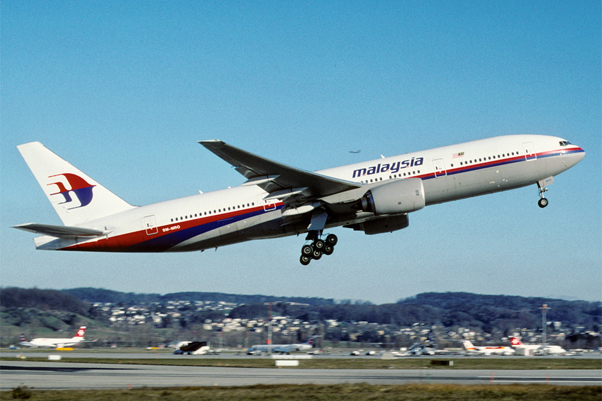The ongoing search for missing Malaysia Airlines Flight MH370 by Malaysian authorities and their counterparts from across the region and the world is facing a challenge rarely encountered by such Search and Rescue (SAR) efforts: there is a lack of a formal power structure that should exist in a air safety investigation.
Since the disappearance of Flight MH370 on Saturday morning en route from Kuala Lumpur to Beijing, no nation has stepped forward to assume a leadership role in an official probe, leaving a formal leadership vacuum that aviation industry experts say appears unprecedented.
Malaysian authorities are currently conducting their own informal investigations in cooperation with other governments and international agencies, but they lack the legal powers inherent with a formal international probe conducted under UN-sanctioned rules.
Those legal powers include the right to take testimony from all witnesses and other involved parties, the right to have exclusive control over the release of pertinent information and the ability and authority to centralise a massive amount of evidence from a large amount of disparate sources.
A senior official familiar with the preliminary Malaysian probe said Malaysian authorities could not yet convene a formal investigation due to a lack of evidence on where — namely, in which national jurisdiction — the Boeing 777-200ER jet crashed.
He said this was not hampering their work, that preliminary investigations had begun and that they were working with their neighbours, US officials and the jet’s maker, Boeing.
Malaysian investigators have begun collecting information from neighbouring countries, including air-traffic control communications and radar data, without any problems, he insisted. “There have been no issues in getting that information.”
However, Southeast Asian waters are a hotspot of territorial disputes, and any decision by Malaysian authorities to unilaterally open a formal investigation under UN rules could be construed as a assertion of sovereignty in an area that has seen claims from several countries, especially if the crash site is discovered to be in an area outside of Malaysia’s recognized claimed waters.
In the absence of a formal investigative process conducted quickly and efficiently under rules set out by the UN’s International Civil Aviation Organization (ICAO), the risk is that early investigative processes could be hampered, and crucial evidence and records could be lost, air accident experts said.
Possible witnesses such as airline executives, cargo handlers, and mechanics might be reluctant to cooperate with an informal Malaysian investigation working outside of ICAO-sanctioned rules of engagement that could offer them protection from lawsuits.
“The sole objective of an accident investigation is to prevent future accidents and not to apportion blame or liability,” said aviation lawyer Simon Phippardof international legal firm Bird & Bird.
“The international standards attempt to provide a degree of protection, for example from criminal prosecution, for individuals who give statements to the enquiry.”
The absence of a formal investigation also prevents Malaysia from exerting exclusive control over the collection andd dissemination of information such as wreckafe records and witness accounts, leaving Malaysian investigators to rely on the goodwill of other countries and independetn media sources. A formal investigation would also enable the setting up of a board to designate parties to the investigation, including the aircraft manufacturer, the engine manufacturer, labour unions, the airline and the aviation safety regulatory agency of the country where the airline is based.
“If they haven’t even decided what country is in charge of the investigation, then whatever is being done at this point is probably suffering from a severe lack of top-down control and coordination,” said Ted Ellett, an aviation lawyer at Hogan Lovells in Washington and a former Federal Aviation Administration (FAA) chief counsel.
This lack of clarity as to who has authority over what has already appeared to create tensions between Malaysia and China, which had up to 154 of its citizens on board Flight MH370, and is currently pushing for a more significant role in the investiation. On Monday, China’s Foreign Ministry urged Malaysia to step up its search efforts and start an investigation “as soon as possible and correctly”.
Governments usually step in quickly to assume leadership of an investigation after accidents of this sort, based on where the accident occured. It is the uncertainty of where MH370 touched down, however, that is preventing Malaysia or any other government in the region to step into this role and assume control over a formal investigation.
Under UN rules, if a plane crashes in international waters, the country where the aircraft is registered — in this case, Malaysia — is in charge of the investigation.
Story: Reuters





Reader Interactions